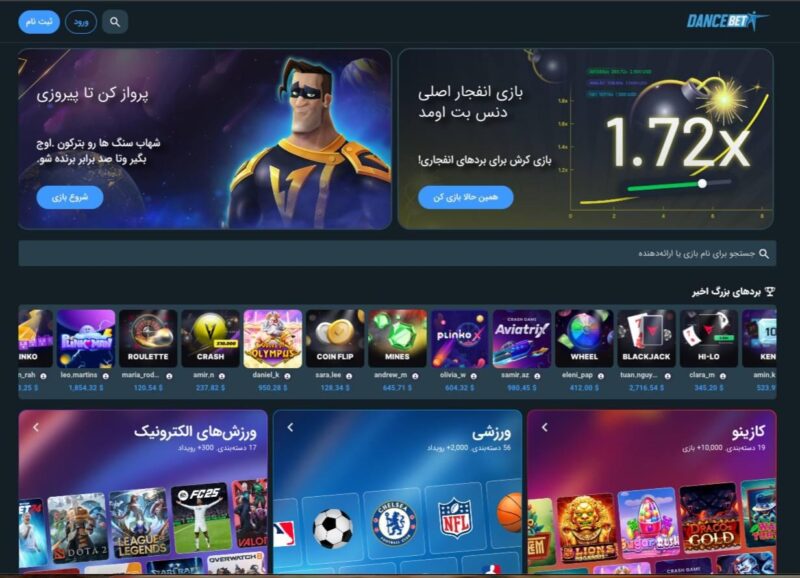The Future of Online Sports: How Apps Will Transform Match Viewing

The sports industry is shifting from traditional broadcasting to digital innovation, with mobile apps transforming fan engagement through live streaming and analytics. This transformation is already visible in several leagues across the globe, but the full extent of change is just beginning.
Evolving Fan Engagement
The way fans watch sports is changing rapidly. In previous decades, a typical viewer might schedule an evening around a single televised match. Now, apps enable multi-match monitoring, interactive commentary, and immediate access to highlights at the user’s convenience. Push notifications and social features enable real-time engagement, transforming solitary viewing into shared experiences.
Teams and leagues are also utilizing augmented and virtual reality to offer fans immersive ways to interact with games, such as viewing player stats on the field or experiencing courtside seating from home. Such developments enrich the experience while opening new revenue streams for rights holders and sponsors.
Data-Driven Interactivity
Another hallmark of future sports consumption is data. Advanced apps are equipping fans with a wealth of statistics and analytics previously limited to professional scouts. From individual player heat maps to real-time injury reports, watchers can delve into granular insights, significantly enhancing their understanding of strategies, tactics, and athletic performance.

This democratization of data is already fueling more nuanced conversations about sports, and it will likely grow as technology becomes more sophisticated.
Leagues and broadcasting companies are also partnering with tech firms to overlay real-time data onto live streams. Fans can track metrics like shot speed in tennis or passing accuracy in football, right on their screens. This phenomenon extends beyond just visual enhancements. Predictive algorithms can suggest likely outcomes, alerting viewers to potential game-changing moments.
Personalizing the Viewing Experience
Personalization stands out as a significant trend for online sports apps. Modern platforms employ AI-driven recommendation engines to serve tailor-made highlights, player interviews, or behind-the-scenes content. A user who repeatedly watches coverage of a particular defensive midfielder may see advanced content on that position, or relevant historic performances of similar athletes from the past. These curated feeds keep viewers engaged while forging deeper emotional connections with the sport.
Besides the content itself, personalization extends to interactions with fellow fans. Apps increasingly incorporate community forums, chat rooms, and even audio spaces where supporters can discuss the match in real time. This fusion of broadcast and social media creates a more intimate relationship with teams and fosters global networks of supporters.
The Role of Sports Apps
Fans of popular leagues, from European football to the North American sports circuit, will rely heavily on apps for their day-to-day engagement. The surge in digital evolution is evident when fans explore reputable platforms, prompting them to research how different mobile solutions compare, which is why some decide to try a 1xbet download to see how these high-tech features translate into enhanced sports coverage and real-time analytics. Smart devices will also adapt to more specialized uses: wearable technology might sync with your sports app, notifying you of a major play with subtle vibrations or overlaying instant replays in your augmented-reality glasses.
We might also see an uptick in niche sports finding audiences through dedicated apps. Smaller leagues, often overshadowed by mainstream coverage, could experience exponential growth by tapping into targeted communities. These apps can facilitate direct fan support, crowd-funded production, and immersive experiences that never would have been feasible through traditional broadcasting.
Shifts in Monetization and Sponsor Opportunities
The rise of digital platforms naturally sparks changes in monetization. Subscription models, pay-per-view segments, and targeted advertising are now common revenue strategies. Sponsors have discovered that integrated in-app advertising can be more interactive than classic TV commercials.

Viewers can, for instance, click an on-screen banner for a discount on sports gear or sign up for a new training program endorsed by an athlete. This interactive model also provides robust analytics to sponsors, letting them measure conversion rates and user engagement more accurately.
Gamification is another effective monetization tool. Some apps let users earn points for predicting correct scores or participating in trivia about team history. These points can be redeemed for merchandise or exclusive fan experiences, thereby increasing user retention and opening avenues for brand promotions.
Ethical and Regulatory Considerations
With heightened use of personal data and integrated betting features, it’s crucial to address privacy. Regulators worldwide will likely impose stricter guidelines on data usage, especially in sports platforms that blend social media, live streaming, and personal analytics. Sports fans may also grow more conscious of data protection, pushing apps to adopt transparent policies and robust security measures.
Conclusion
The future of online sports will hinge on how seamlessly apps integrate innovative technology, reliable data, and engaging social features. We can expect more immersive experiences, more personalized recommendations, and greater global connectivity as fans from multiple time zones come together to celebrate shared sporting passions. With 5G networks expanding and advanced devices becoming affordable, few barriers remain to block this digital revolution. Ultimately, those who embrace these changes stand to gain the most from an environment where sports and technology converge to deliver experiences once thought impossible. This transformation is reshaping the way we watch and appreciate every match.






